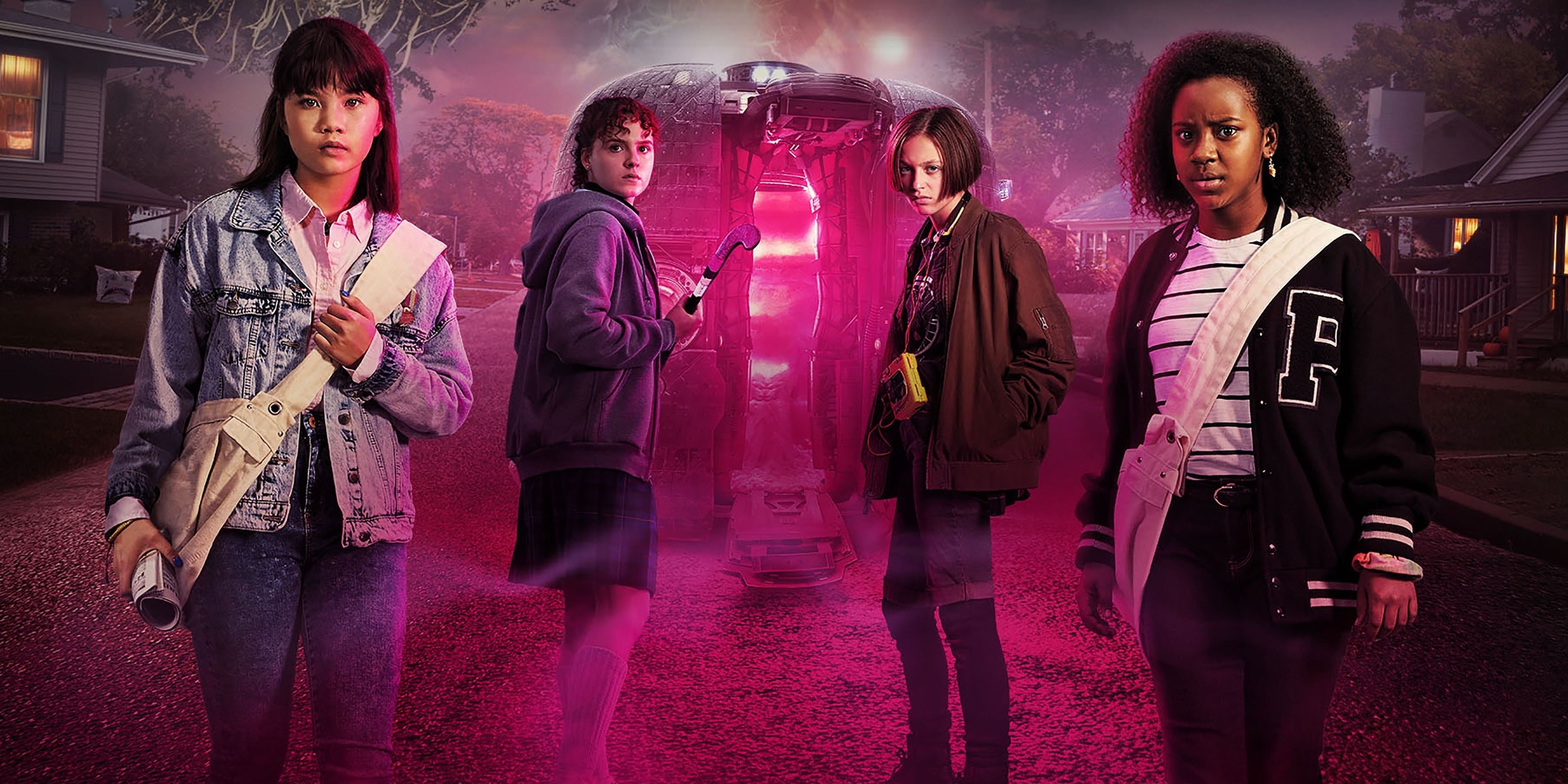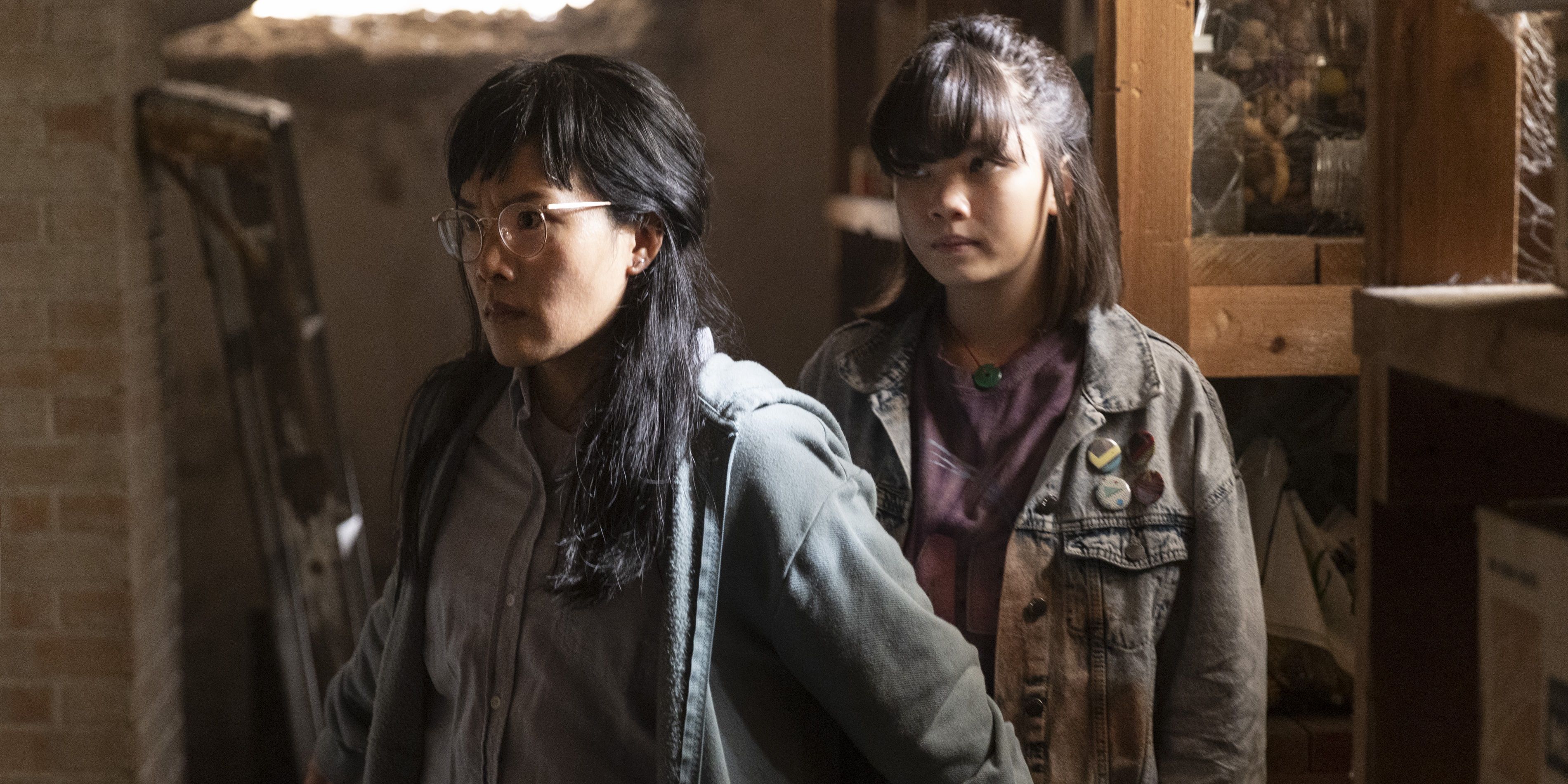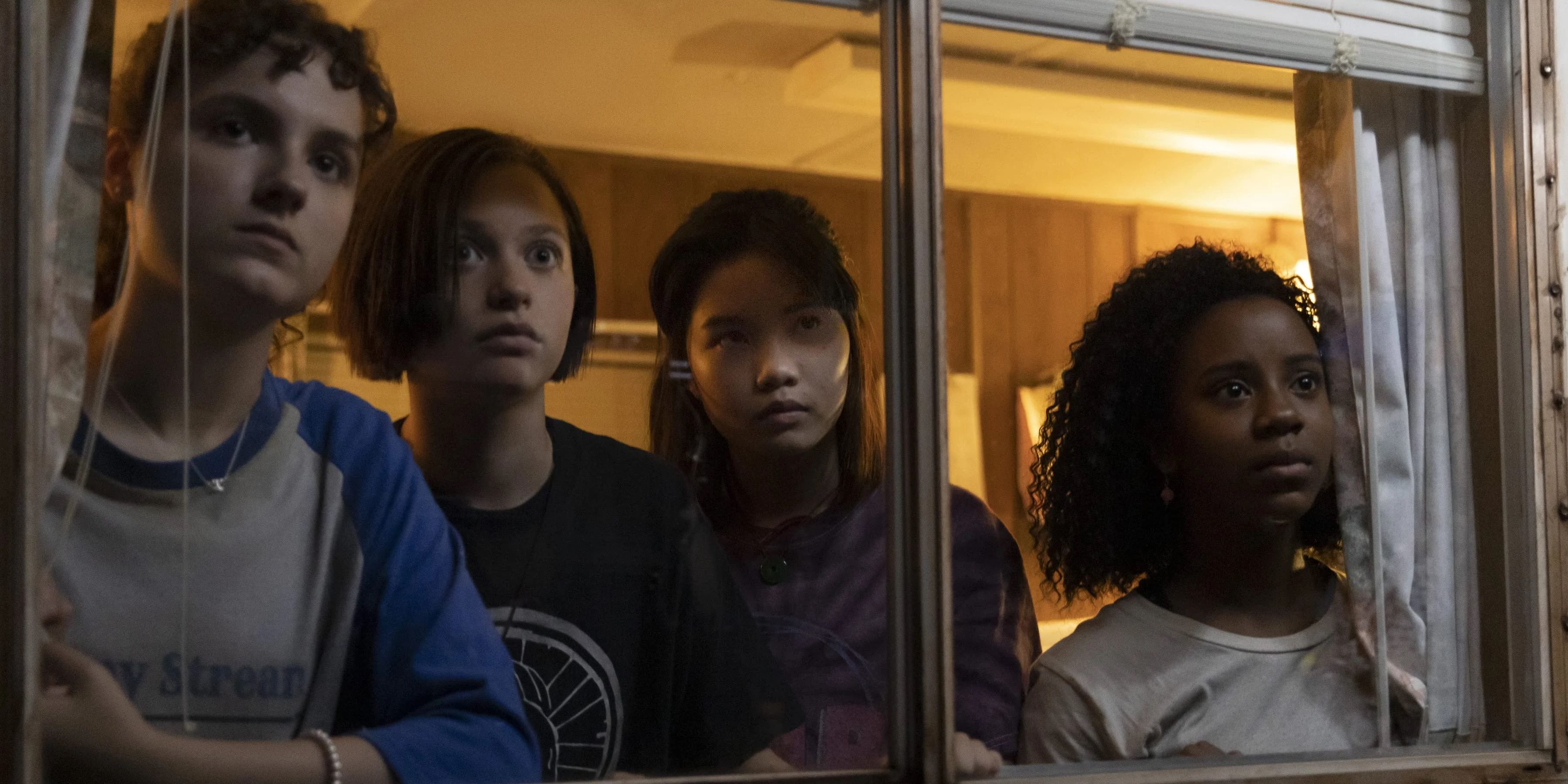Warning: This article contains spoilers for the first season of Paper Girls.
Based on the comic book of the same name by Brian K. Vaughan and Cliff Chiang, Amazon’s Paper Girls is one of the best new shows of the year. It’s a large-scale time-bending sci-fi adventure told through the lens of an intimate Stand by Me-style coming-of-age story. The titular time-traveling tweens are brought to life by the perfectly matched cast of Camryn Jones, Riley Lai Nelet, Sofia Rosinsky, and Fina Strazza. The series subverts the familiar tropes of time travel narratives in order to explore the dimensions of its characters and the heartwarming friendships they share.
In stories about time travel, the time travelers usually have to avoid encountering their older/younger selves to prevent any drastic alterations to the timeline. But in Paper Girls, that’s the central dramatic engine. The characters engage in deep conversations with their older selves. Erin has an existential crisis after finding out that she makes nothing of herself. Tiff is initially proud of herself for attending MIT, but is later disappointed to learn that she was kicked out of school (not to mention the bombshell that she was adopted). Both Erin and Tiff judge their older selves for the choices they’ve made and lecture them on how they should’ve done things differently, both missing the irony that they’re the ones who are destined to make all those mistakes.
Mac learns from her brother – who’s a bully in the present but a caring husband and father with a medical degree in the future – that she’s only a couple of years away from dying of brain cancer. She seizes the opportunity to make a connection with the mature older version of him that she would’ve otherwise never gotten to meet. At first, KJ avoids her older self because she’s worried that she’ll have become everything her mother wanted her to be. She’s elated when she meets her future classmate and learns that she’s going to develop a passion for filmmaking and enroll in a film school, but goes into an emotional tailspin when she sees her older self kissing this classmate and has to come to terms with her sexuality before she’s ready.
When Erin bumps into her future self in her own kitchen, she starts rattling off personal information to prove that she’s the younger version of herself. This is a common trope in time travel stories. Since anyone’s claim of having traveled through time is completely unbelievable, fictional time travelers are often required to provide intimate information that only they would be privy to, to prove that they really are who they say they are. Not only does this help to explain away the time travel; it’s also a neat exposition trick for rounding out the characters.
This trope comes up a couple of times in Paper Girls’ first season. When Tiff decides to ask her future self for help as a last resort, she calls her from a pay phone and reveals a bunch of personal details – from her mom’s nickname for her to the location of a birthmark – to prove that she’s really the younger version of herself. Mac’s brother Dylan thinks he’s the target of a very dark practical joke when a kid who looks like his long-deceased little sister shows up full of private information about their family. He doesn’t believe she’s really a time-traveling Mac until he tests her DNA.
Another commonality in time travel stories is that no one ever ends up where they’re supposed to, either because the time machine is finicky or simply because it makes for a better story. A lightning bolt sent Doc Brown back to the Old West. Phil Connors was doomed to relive the same crummy day over and over again. In their quest to get back to the ‘80s, the paper girls keep getting stranded in the wrong decades. They spend the back end of season 1 stuck in the ‘90s, then the finale’s cliffhanger ending leaves Tiff and Erin stranded in the ‘70s.
Stories about time travel are a fun way to explore alternate timelines. But these alternate timelines usually have worldwide ramifications, like a timeline in which Russia won the Space Race or a timeline in which Nazis rule the Earth. In Paper Girls, the alternate timelines are explored through the ways they affect the characters personally. The central premise is that these girls have nothing in common except for their extraordinary circumstances. If they weren’t whisked into the future, they wouldn’t be friends. But after being forced to work together to get back to their own time, they get to know each other on a deep emotional level and end up becoming the best of friends. In an alternate timeline, they never became friends. Adult Erin tells 12-year-old Erin that in her timeline, she quit her paper route after one day and never saw the other girls ever again.
Time travel narratives often question the battle between fate and free will. In the Terminator movies, Sarah Connor insists that the future isn’t written and a grim destiny can be changed with decisive actions in the present. Paper Girls deals with this question in some depth. After seeing how her own death will play out, Erin wonders, “What is the point?” Mac tells her she can just not get in a giant Voltron robot to prevent her foreseen death, but is resigned to the idea that she’s doomed to die from a terminal illness. KJ insists that Mac can use her knowledge of her cancer to catch it early and stop it from becoming fatal.
Paper Girls doesn’t just use well-worn tropes from existing time travel stories. It also introduces plenty of its own original concepts, like time folds, ablution beams, the notion that changing the timeline is like recording over a mixtape, and the underground revolution fighting against the bureaucratic overlord of the space-time continuum. Amazon has yet to renew the show for a second season, but hopefully, that renewal is coming. These time travel concepts deserve to be explored in more depth, and this incredibly charming cast deserves to be reunited.




